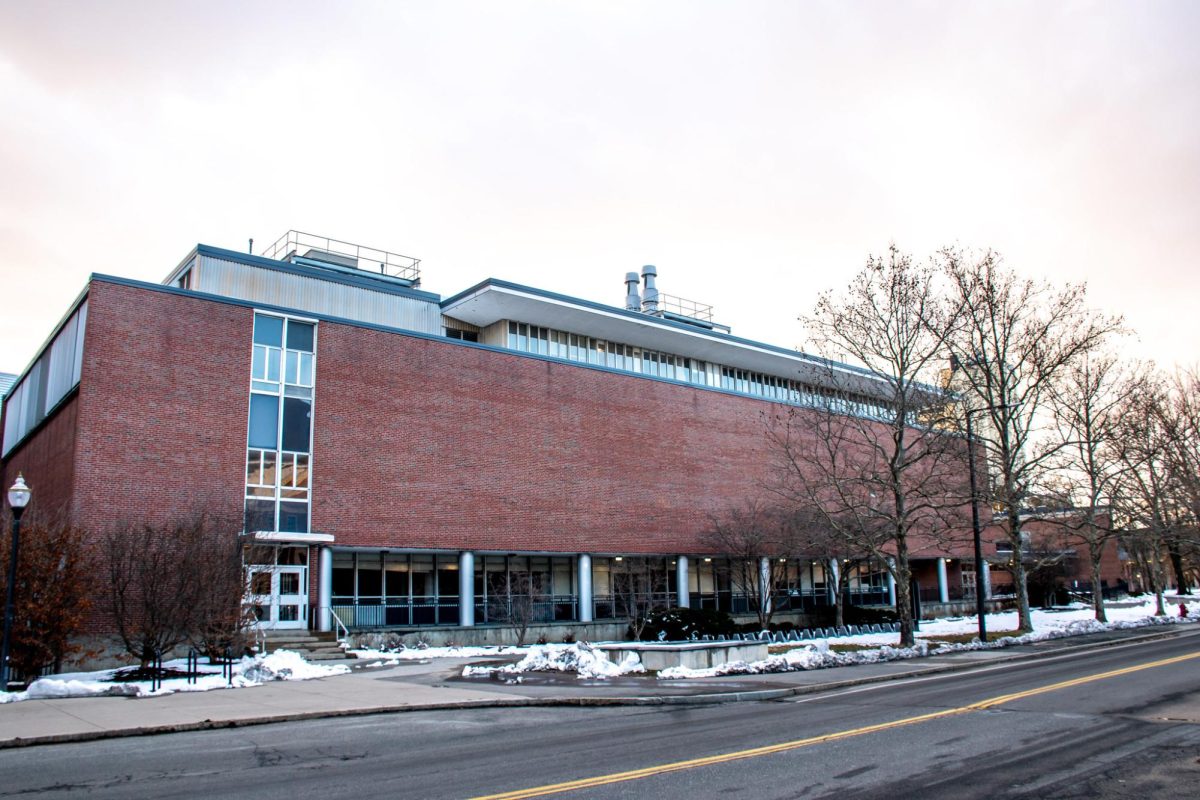During my four years at the University of Massachusetts Amherst, I have become accustomed to classes being cut short during the first few weeks of the semester. As a political science and communication double major, most of my classes are held in buildings with outdated classrooms and little-to-no air conditioning. As I endure mildewed classrooms, narrowing course catalogs and a constant dialogue about the shrinking demand for human voices as technology begins to develop one of its own, I have in many moments questioned the choices I’ve made as far as my aspirations go.
As our world grows more dependent on technology, there is a mounting pressure to either catch up or get left behind. While some may argue UMass is in danger of the latter, there is an opposing pressure also mounting: we need to remember to listen to the living, breathing voices that make UMass what it is, and place more value on the human, social aspects of a college campus that we’ve lost in the years since the pandemic.
My first year of college consisted of remote classes and very little interaction with my classmates and professors. In the following years, Zoom classes and meetings have become a lasting norm. While this technology is useful in circumstances like the pandemic, I admit that after beginning college in an online setting, I have become less willing to speak out in class, talk to my classmates and even schedule in-person advising appointments.
These new developments do not go unnoticed by my professors who often express their frustrations at the blank stares and disengaged students sat in front of them. Outside of class, student-run events and organizations often fail to achieve large turnouts, as our peers have become more accustomed to limited social engagement after a freshman year unmarked by real orientations or support for the major transition of entering college. While technology like Zoom and ChatGPT have been creating new norms for how a college campus operates, all too often student experiences are not being enriched, but undermined.
A lack of respect for humanity-based majors and in-person interaction is one instance of community satisfaction being placed on the back burner. Beyond the classroom, examples of technological integration into our campus environment are constantly appearing, meanwhile students and staff go continually unheard. Recently, at Blue Wall, student cashiers at some restaurants have been replaced by self-service kiosks, and throughout campus classrooms smart boards and other classroom technologies are becoming more common.
Meanwhile, students are more concerned about whether they will have a place to live next semester. The UMass housing crisis, exacerbated by a continual over-acceptance of applicants, is becoming a long-term concern for students each year. UMass has yet to implement a real solution for this crisis. Instead, desperate students are offered housing in the newly built Fieldstone apartments — starting at a staggering $1,500 per month.
New technologies and the current issues with student housing may seem unrelated, but they illustrate the recurring theme of technology and efficiency being the focus of those who hold authority, and the opinions of the people whose tuitions actually fund the institution fall on deaf ears (17-40k per student, per year). This is detrimental not only to students and staff who feel some area or another of their college experience is lacking, but to the institution itself — as prospective students and professors do not want to become a part of an educational machine aimed at churning out as many diplomas as possible, but a community that enriches them in and outside of the classroom.
Technological advancement is not a bad thing. UMass should aim to be innovative and competitive, and to take advantage of resources meant to diversify learning. However, it is imperative that these goals do not overshadow human input and community engagement – especially in an institution meant to develop and socialize us for the real world.
Devon Chichester can be reached at [email protected].



















